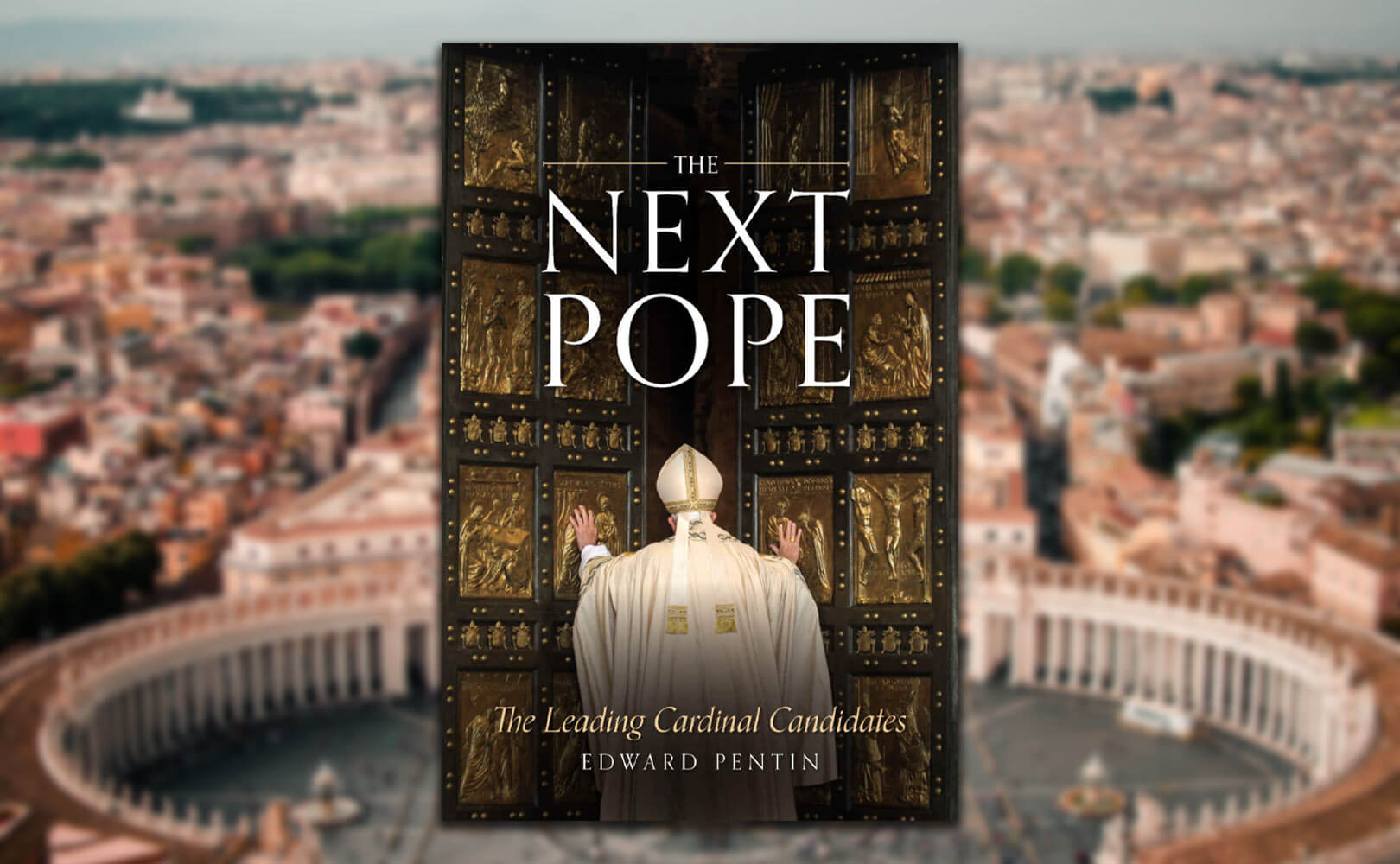The Next Pope: The Leading Cardinal Candidates
Edward Pentin
Sophia Institute Press
523 pages
$9.99 Kindle; $20.95 Paperback
Edward Pentin’s recent book The Next Pope is a heavyweight tome, quite literally — nearly 700 pages printed on high quality paper stock. The author has provided a great public service to the Catholic Church.
Since this Pope has not allowed the cardinals to meet as a group in consistory — presumably to avoid having them ask inconvenient questions — more than ever members of the Sacred College are strangers to one another. One might even speculate that Cardinal Bergoglio of Buenos Aires would never have been elected pope had his fellow cardinals known more about him.
The Next Pope exhaustively profiles nineteen Papabile from an orthodox and partly traditionalist point of view. I find at least one of those profiled a rather improbable inclusion: Cardinal Burke, whose chances of election I’d place near zero. Many expect some key cardinals to position themselves as compromise candidates promising a cooling-off period in the Church after the turbulent and troubling Francis pontificate. Cardinal Parolin would surely have been one of them, though perhaps now he is too tainted by the Chinese debacle and the scandals swirling around him to have a strong chance. Cardinal Zuppi, a generally progressive Archbishop of Bologna, might well be such a compromise choice for a College increasingly stacked with Francis appointees.
Readers of 1P5 will approve of the inclusion of Cardinals Sarah, Piacenza, Ranjith, Müller, Eijk and Erdő, even if the odds are stacked against them. They will be disturbed to be reminded, say, of Cardinal Schönborn’s openness to women’s ordination and Cardinal Ravasi’s chumminess with Italian Freemasonry. Cardinals Scola and Ouellet come off these days as yesterday’s men, and not particularly inspiring. Cardinal Tagle seems someone who, if elected pope, might well be more radical than Francis, if less coarse and thuggish. Where cardinals are distinctly friendly or unfriendly to the traditional Latin Mass, Pentin notes that in the text.
Missing from the book is the proverbial elephant in the room: a thorough re-examination of the Petrine office in the light of the Church’s perennial tradition and the current disastrous pontificate. Some Catholics are so despondent they wonder if they even believe in the Church’s teachings on the papacy anymore, and there’s been a trickle of conversions to Eastern Orthodoxy.
Eminent scholar Fr Aidan Nichols of Blackfriars, Cambridge, who signed the open letter accusing Pope Francis of heresy, believes canon law needs to be amended to give a clear remedy in a case when a pope has gone rogue. Peter Kwasniewski says our current crisis lies partly or even largely in “hyper-papalism” and the “Spirit of Vatican I,” which in practical terms turned the pope into a “combination Delphic oracle, globetrotting superstar, dynamo of doctrinal development, and standard meter bar of orthodoxy.” The time has come to grapple with this kind of Papal maximalism which many of us once thought, until very recently, a beneficial “feature” rather than a “defect.”
It was not always so. For most of the Church’s history, the majority of Catholics probably didn’t even know the name of the pope, and didn’t need to know. The pope should be a guardian of the Deposit of Faith, and never an innovator. Paul VI would never have dared approve a new rite of Mass from whole cloth had he lived before the 20th Century. As late 1829, the pope only appointed 94 of the world’s 646 diocesan bishops, and Catholic heads of state and leading Catholic dynasties served as healthy counterweights. The upheavals of the 19th Century, including the loss of the Papal States, brought about a backlash at the First Vatican Council. Are you aware that quite a few Council fathers were extreme partisans of papal infallibility, and wanted every pronouncement of the Supreme Pontiff to be deemed infallible? Thankfully, God prevented that manifest absurdity from being proclaimed. No wonder Newman and many other great cardinals felt that formally proclaiming the dogma of Papal infallibility was inopportune, and would have negative side-effects (even though the doctrine already existed). They did however accept a more reasonable and narrowly limited definition at the Council, but one can argue even that had ill effects, above all with Paul VI’s confidence that he could innovate as no earlier pope could ever have imagined doing. The rest is history, as they say.
For those with a real interest in what we may be facing, I can only recommend that you buy the book and study it.
And above all, pray.
Correction: This review originally stated that “Cardinal Dolan courted controversy by sending copies to his fellow cardinals, so that they might be better informed about the men who are leading candidates to succeed Francis.” Edward Pentin reached out to 1P5 to clarify that it was George Weigel’s book, also entitled “The Next Pope” (thus the confusion) that Dolan sent out. We apologize for the error.


